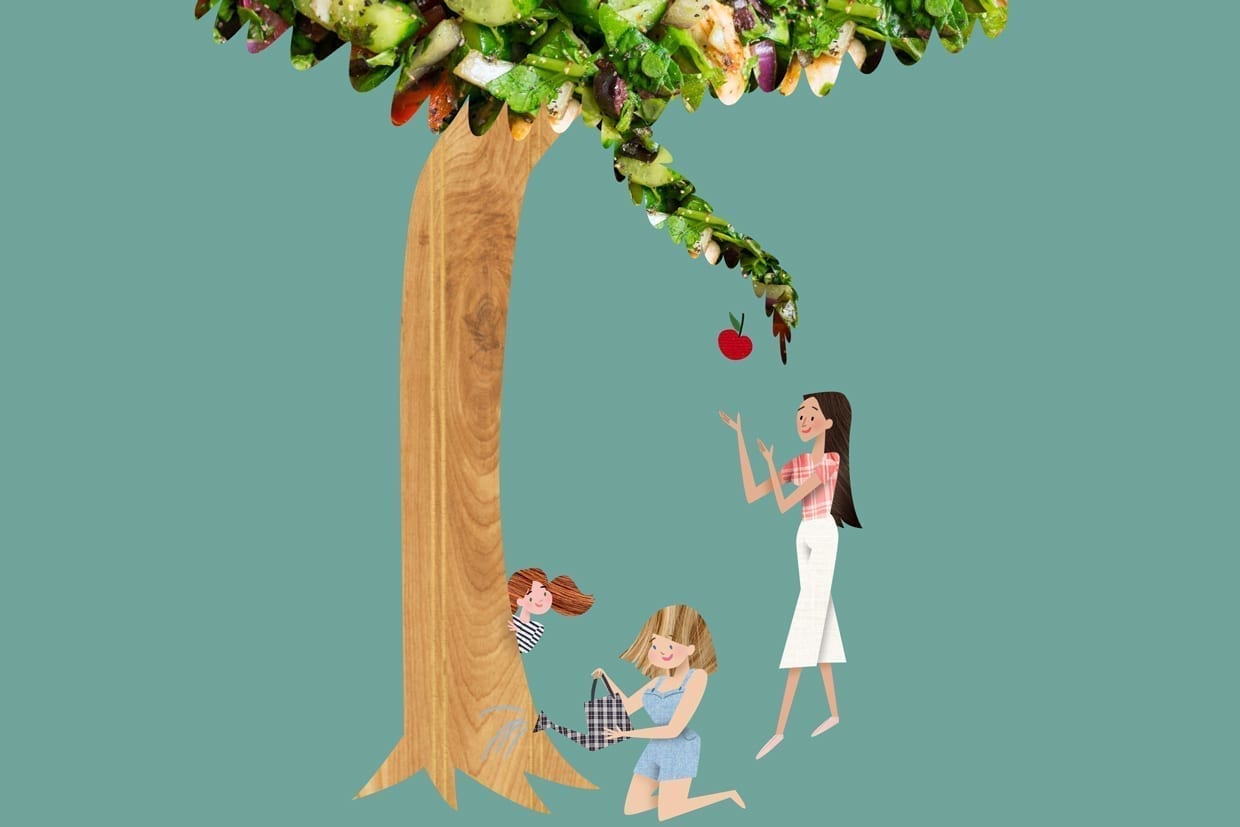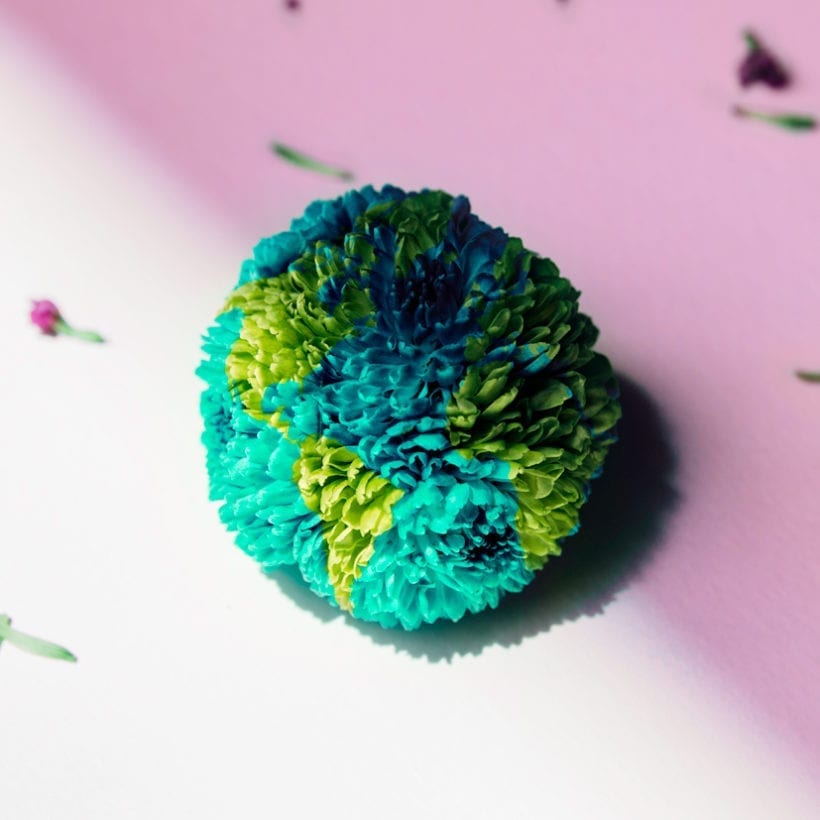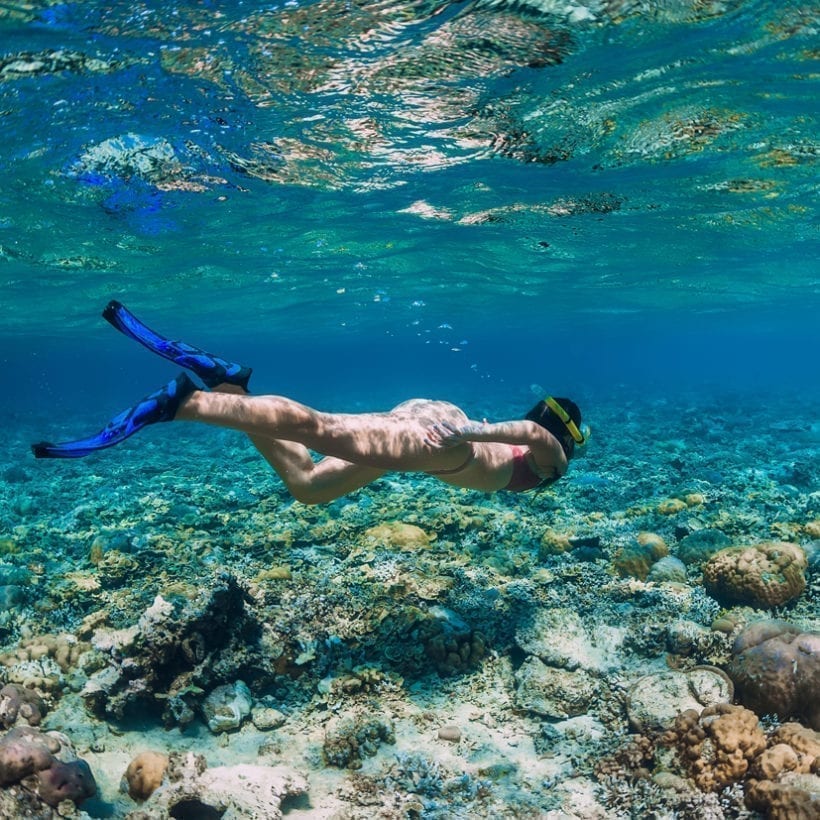Spoiler alert (kind of): In the third episode of “Big Little Lies” season two, the elementary school where the Monterey Five send their children is teaching the kids about global warming. Renata Klein’s daughter, Amabella, is found passed out in a closet, and it is later revealed by a very unsettling therapist dressed as Little Bo Peep that the child is, “worried about the end of the planet.”
https://www.instagram.com/p/BzqQQXap8Xb/
I feel for Amabella. It is scary to know that by 2050, it is predicted that the weight of plastic in the ocean will be greater than the weight of fish, that according to a recent NPR article, “warmer oceans could lose one-sixth of their fish and other marine life by the end of the century.” Public health is affected by global warming, and so is the economy, largely due to the costs of combating extreme weather events. For context, there have been 241 severe weather events in the US between 1980 and 2019 and the total cost of these events exceeds $1.6 trillion. It is enough to make me want to faint, too.
Our natural instinct is to shield children from things that can harm or scare them, which is why movies have ratings and roller coasters have height thresholds. But it is also important to educate children, the future adults, about the reality of climate change and decisions their generation can make to slow its progress.
One of the many benefits of teaching kids and teenagers about climate change is that their parents may become more involved with the issue. A recent study done by Reuters found that “parents whose middle-school-age children followed a curriculum that included learning about climate change increased their own level of concern by nearly 23 percent on average.”
How do we teach the next generation about climate change in a way that does not inspire fear or inaction?
Husband and wife team, Zach Nathan and Iris Lami, co-directors of Gingerhill Farm Retreat, an educational eco-retreat center in Kealakekua, Hawaii that offers internships, volunteer programs, retreats and farm camp programs for kids, warn against trying to scare kids into action. “Warning of the dangers of climate change is not enough to motivate a child to live a sustainable lifestyle,” they say. “In fact, instilling the fear of such a grave future in a young child is likely to ignite feelings of hopelessness and helplessness, neither of which are motivating emotions.”
So, how do we teach the next generation about climate change in a way that does not inspire fear or inaction?
Explain Tangible Ways They Can Make a Difference
Graydon Lawson, the owner of Reduce Waste Now, says, “Kids and teenagers might feel overwhelmed. They might be asking themselves things like, ‘How are we supposed to stop that much plastic [in the ocean]?’ They could also be thinking, ‘If everyone else is sustainable, it won’t make a difference if I’m not.’ Since you’re not a mind-reader, just ask what they’re thinking, and respond accordingly.” Kids’ fears about the future are probably not much different from your own and you can validate their concerns, even if you do not have the solution.
“If they aren’t confident in their ability to make a difference, bring out the facts,” Lawson continues. “By using a reusable water bottle for a year instead of disposable plastic bottles, they’re saving 217 plastic water bottles from going to the landfill. That’s just one of the many things they can do to reduce plastic pollution. And if more and more people start to do this, which they are, the amount of plastic saved from going to the landfill drastically increases.”
Teach and Model Reusing Items or Buying Second-Hand
Lauren Tingley, an elementary school teacher and founder of Simply Well Balanced, a site that teaches families how to simplify and declutter their lives and homes, says, “In my classroom, I like to teach children about sustainability by hosting toy and book swaps. A few times a year, especially around the holidays, I speak with the families and explain to the children that we will be having a classroom swap. I encourage the students to find an item at home that they no longer use or love and bring it into the classroom. Each student who brings in an item to swap gets to choose something to take home. [This is a simple way to] encourage children to think twice before throwing something away. Instead, I encourage them to pause and think about if the item is still useful.” She encourages families to shop at thrift stores and yard sales whenever possible — and to always promote toy sharing. Toy sharing is a top Pinterest trend for this year, and searches for toy share subscriptions increased by 313 percent.
https://www.instagram.com/p/BzG9zfIHhfA/
Gamify Sustainability
Lucy Harris, founder of Hello Baby Bump, a website devoted to helping pregnant women and new mothers navigate babyhood, shares the following ideas on how to create healthy competition to make sustainability seem more fun.
“Educating [kids] on splitting up recyclables and waste is super important. You can make a game out of it for young children by having a sort of quiz. You hold up a piece of rubbish and they have to tell you if it is waste or recyclable. This can [be] enjoyable and create a little bit of healthy competition, so they will continue to recycle properly,” Harris says.
According to a 2012 study done by Stanford University, approximately 50 percent of the weight of garbage is from packaging materials and “every 30-40 days we discard our own weight in packaging.” This amount has likely increased in the seven years since the study.
Harris says, “When you go shopping with your children, get them to play a game … pick the items with the least amount of packaging. It’s a great way to keep them involved and distracted from picking up too many goodies.”
https://www.instagram.com/p/BzO-ctSnoR2/
Teach Mindfulness to Children in all Areas of Life
Children who are mindful in their everyday lives, who understand the impact of their actions, will more easily grasp the importance of sustainability. “Working on a farm teaches about personal responsibility, reciprocity, and the role that nature plays in sustaining our bodies,” Nathan and Lami say. “Children learn that their actions constitute personal responsibility by observing what happens when they do (or don’t) water a tree, handle a plant with care, or feed an animal. They come to understand the role that the environment plays in human life by observing the process of seed to feed, watching Keiki plants grow large and travel to their lunch plates; and they come to understand just how fragile plant life truly is. These lessons, in combination with the mindfulness we instill through yoga, exercise, and martial arts, encourage children to think critically about the implications of their behaviors before they act.”
It is scary out there. It is scary for adults, but especially for children, who know they have a livewire on their hand and all eyes on them to help fix the future. If you do not have kids of your own (or maybe especially if you do) and you feel helpless, you may consider making a donation of time or money to youth-focused climate change groups like Zero Hour or iMatter Youth Movement. By educating children about the importance of sustainability, not only are we offering hope for a brighter future for the planet, but we are building stronger, more mindful citizens.
We only recommend products we have independently researched, tested, and loved. If you purchase a product found through our links, Sunday Edit may earn an affiliate commission.







